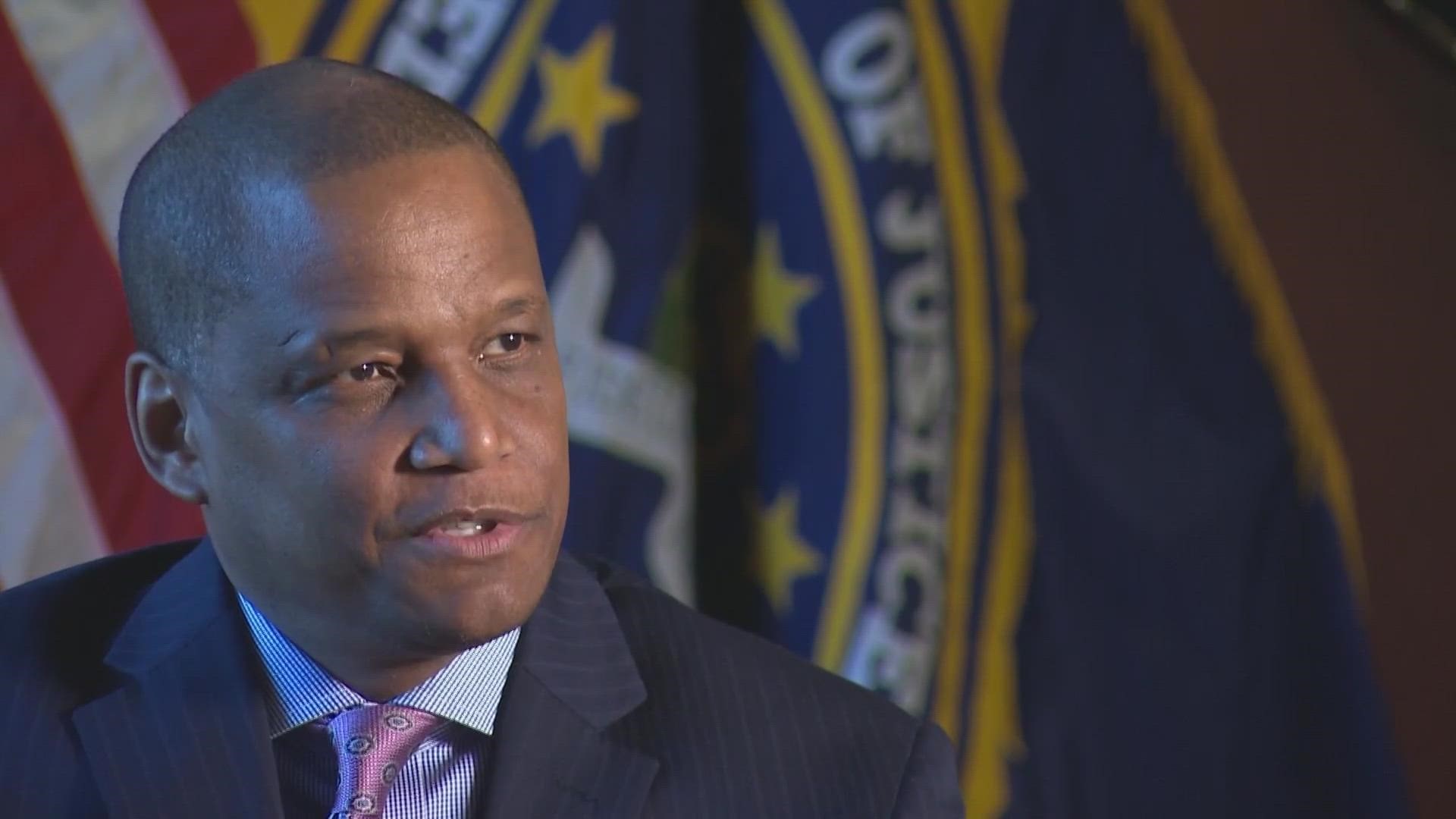SAN ANTONIO — Special Agent in Charge Oliver Rich is a long way from his hometown of Kansas City, Missouri. But Texas keeps popping up in his journey.
"I'm a guy who grew up with dreams," Rich said. "I didn't necessarily dream of being an FBI agent, to be honest with you. I just wanted to be a pilot. My dad was an Air Force mechanic."
He said his father spoke highly of the pilots in the U.S. Navy, which stoked his fire to fly. Rich served 12 active years in the Navy, bringing him to Corpus Christi and Beeville.
When recruited for the Federal Bureau of Investigations, Rich said he was a commercial pilot.
"Just sort of very focused, very focused young man," he said. "Committed to being on the right side of everything and doing the right thing, and being right by people and being a good person."
Houston is where he joined the ranks of the FBI in 2004. He worked his way up to chief of staff for the FBI deputy director in Washington D.C. before being named Special Agent in Charge in San Antonio.
"We're focused on counterterrorism, we're focused on counterintelligence, we're focused on cyber crimes and we're focused on civil rights," he said.
Rich would rather speak about his team and mission than himself. The husband and father of two daughters oversees more than 500 employees in Waco, Austin, San Antonio, Del Rio, Laredo and McAllen.
The size of the region means there's a range of objectives.
"The issues that we face in Waco and Austin are very much different from the issues that we might face here in San Antonio or down along the border," he said.
But, he added, what may seem at first like isolated crime events can often turn out to be connected. The script for the kinds of cases his agents look into hasn't changed, like terrorist activity.
"We have worked active terrorist investigations here in San Antonio that have led to people being arrested and convicted and sentenced. So, it happens," he said.
Mass shootings, a considerable concern for his predecessor, Christopher Combs, is also something Rich's office works tips on and passes on to local law enforcement partners.
"We've had a number of different cases that don't even pop up on most people's radar, if you will, that we were able to get in front of many people, or at least to several people, and take them off the streets," Rich said.
'The responsibility doesn't have color. I do.'
According to the FBI leader, he wants the communities to know the bureau is listening to them. Plus, Rich wants the community to know that getting ahead of crimes and solving them sometimes depends on the bureau's relationships with people.
He's the youngest of four children, and vividly recalls his sister teaching him math in church when they should have been listening to the message. Rich said the lessons put him ahead in the classroom, and he still developed a Christ-centered life.
"I had opportunities," he said. "There's a lot of challenges along the way, I'll put it like that. But I was very focused."
While getting too personal, a clear area of discomfort for the SAC, he acknowledges that the challenges of growing up Black lends itself to the diverse workforce the FBI hopes to continue fostering.
"It's a good thing that I work with people to have different experiences," Rich said. "That is the power of diversity. Some people say diversity might be a weakness. I see it as a strength."
SAC Rich became the second Black man to run the San Antonio division of the FBI. Former SAC Don K. Clark was the first, in the mid-'90s.
"That is part of the role, the part of me as a person—with the role and the position," he said. "The responsibility remains the same. I don't lose sight of that."
"The responsibility doesn't have color, but I do."
The wall of former San Antonio FBI bosses shows a scattering of Latinos and no women, while the rest of the leaders were white.
Rich said he's focused on meeting the expectation of getting the job done right, making sure his agents on the front line have what they need and figuring out how to improve an already outstanding group of people who serve the country.
"It was a great opportunity for me to come here," he said. "I think being in a town that is known as 'Military City,' and with my military background and my wife's military background, it was a good opportunity for us to come here and try to serve."

